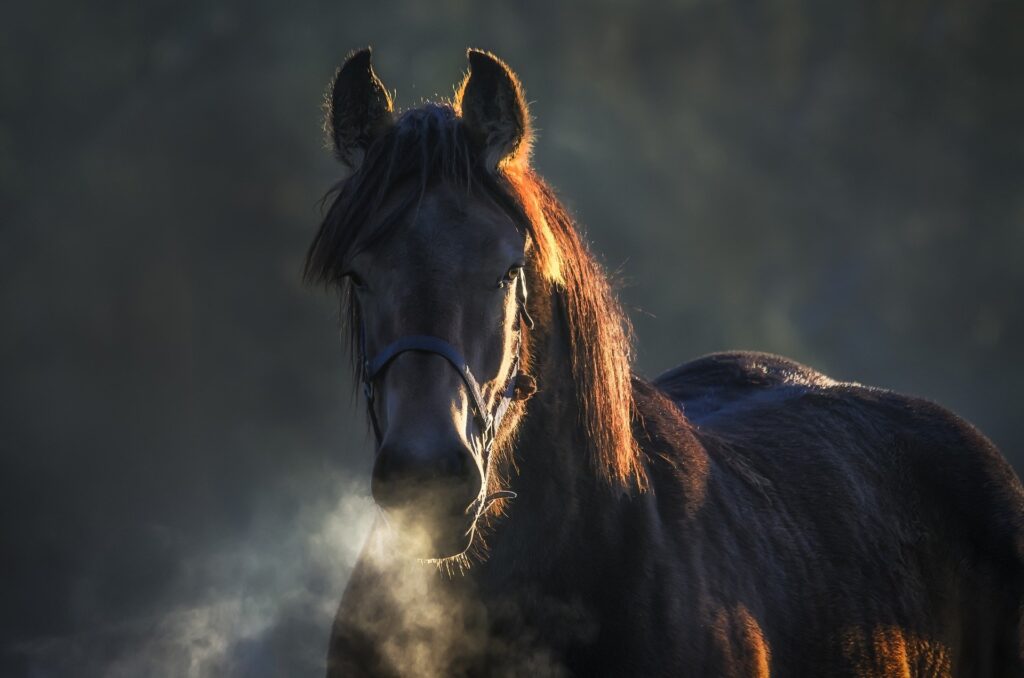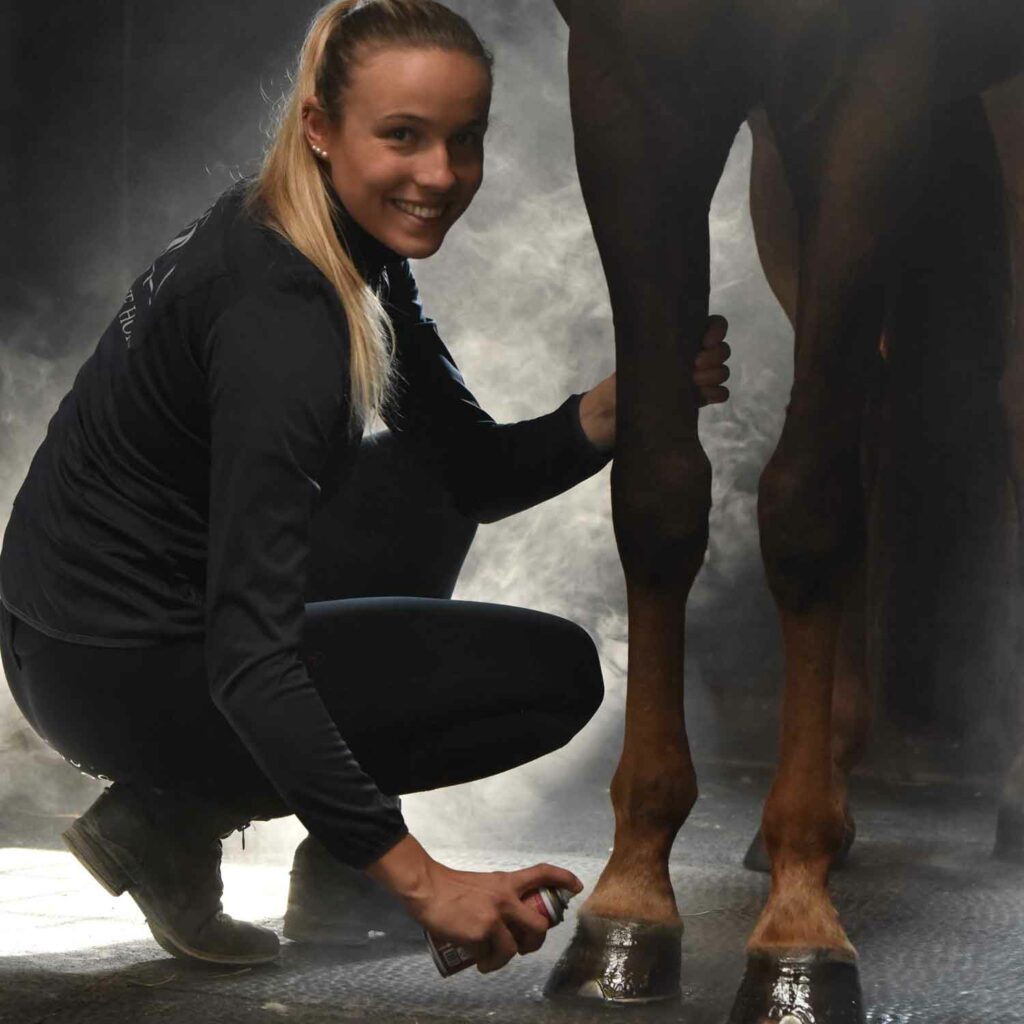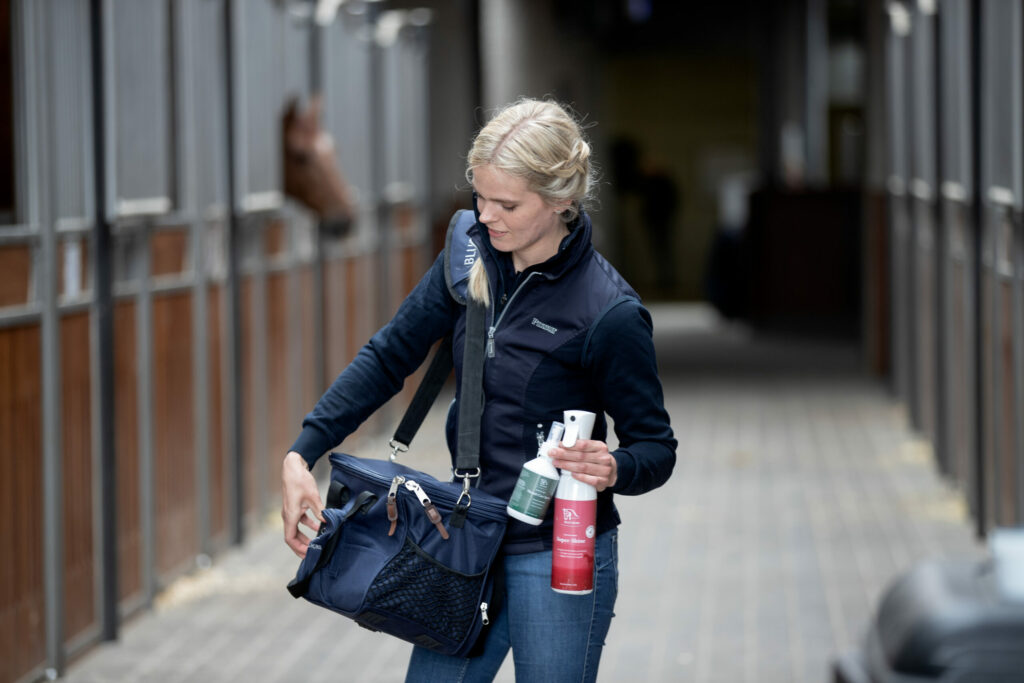What should I do when my horse is coughing?

There are several things you can do:
There are several things you can do to help your horse if it has challenges with dust, which can irritate the airways and, in the long run, lead to asthma in the horse:
- Move the horse out of the box when mucking, bedding, or sweeping the stable.
- Water the stable aisle before sweeping.
- Be mindful of the bedding for your horse and neighboring horses. Straw contains more dust particles than shavings and wood pellets.
- Choose high-quality forage. Hay has more dust particles and fungal spores that can go into the lungs compared to wrapped hay, for example. However, you can reduce some of the dust particles by watering or steaming the hay.
- Pay attention to where you train your horse, whether the ground is dusty, and if possible, train outside.
- Allow your horse to walk outside to cool down after exercise.
- Give your horse plenty of time in the pasture.
- Consider giving your horse an expectorant.
Ensuring your horse’s respiratory system functions optimally is crucial as it needs oxygen in its body to function at its best. Oxygen is one of the most essential nutrients in the body since all cells need oxygen to survive. For instance, in the case of muscles, they require oxygen to perform aerobic energy metabolism, which occurs most of the time. The waste product is carbon dioxide, which the horse exhales when breathing out. If the horse sprints or cannot get enough oxygen supplied, the muscles switch to anaerobic energy metabolism, where the waste product is lactic acid, leading to faster fatigue and a tired and sore horse.
Facts:
Energy metabolism in muscles: There are some chemical processes occurring in muscles called aerobic and anaerobic. Aerobic energy metabolism requires oxygen, while anaerobic does not.
REMEMBER if the cough persists for an extended period or if the horse develops a fever, you should always contact the veterinarian.




